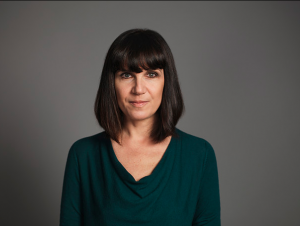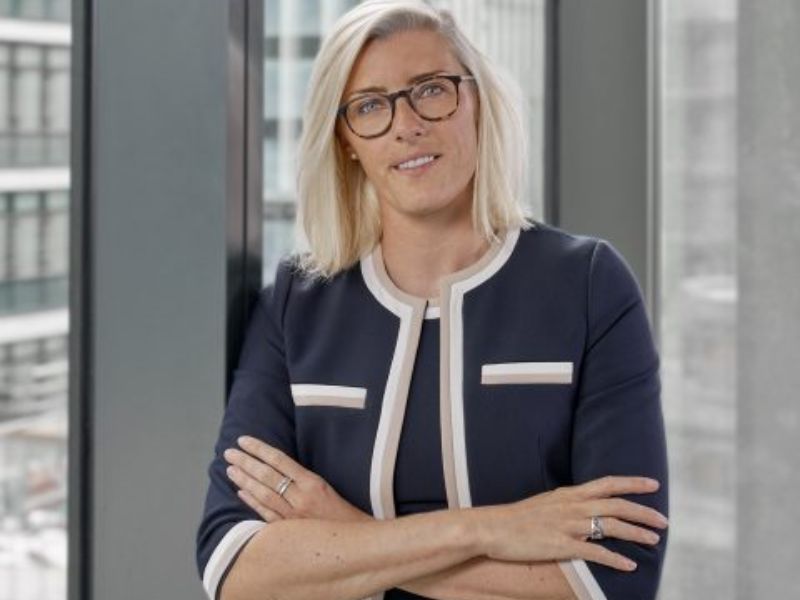Catherine Mayer is the author of three books, Amortality: The Pleasures and Perils of Living Agelessly (2011), Charles: The Heart of a King (hardback 2015, paperback 2016) and Attack of the Fifty Foot Women : How Gender Equality Can Save the World! (March 2017).
She spent more than three decades as a journalist before co-founding the Women’s Equality Party.
Here she speaks to WeAreTheCity about her journey so far.
Did you ever sit down and plan your career?
I didn’t even consider doing so until I was pushing 40 and noticed the ageism afflicting women just a few years older than me and saw women younger than me still enduring all the same challenges I had been forced to navigate.
The more clearly I recognised the hurdles facing women in the workplace, the more clearly I understood the potential benefits of planning. But I never really did get round to applying that wisdom to myself.
As a journalist, I was always scrambling for deadlines. We’re supposed to be thoughtful people but there’s rarely enough time to think.
Have you faced any challenges along the way and if so, how did you deal with them?
Pretty much every woman I know who works in an overwhelmingly male environment, as I did throughout most of my journalistic career, faces similar challenges.
Sexual harassment by colleagues and interviewees was so common as to be routine for me and for other women working in male enclaves whether Westminster or war zones.
I used to pride myself on my ability to endure and thrive, and then I realised that meant I was allowing this workplace culture to continue. I also encountered sex and age discrimination. Again it took me awhile to grasp that it is necessary to resist, rather than capitulate for a quiet life.
Please give us an overview of your new book and its message
In Attack of the Fifty Foot Women: How Gender Equality Can Save the World! I explain just that: how gender equality can save the world. I identify all the interlocking mechanisms holding women back, summon together all the evidence that shows gender equality is better not just for women but for everyone and then, for good measure, I take readers on a tour of the gender-equal future I call Equalia.
What inspired you to write it?
I went looking for a book that would tell me why no country in the world is gender equal, and that would also summarise the different waves of feminism and the main debates in the women’s movement and I couldn’t find such a book.
Also as I canvassed for the Women’s Equality Party, I realised that people had difficulties imagining a gender-equal world.
I couldn’t find the book I wanted, so I wrote it.
What would gender equality mean to modern society?
More gender-equal countries benefit from increased economic growth, institutions that function better and they are also kinder, happier places.
What would you say to those who believe gender parity has been achieved and that women should finally stop campaigning?
I’d say that having an equal pay act isn’t the same as attaining equal pay. I’d point them to statistics that show the terrible toll of violence against women and all the other markers and enforcers of gender inequality. And I would ask them what rock they’ve been living under.
If Donald Trump’s election proved anything, it is not only that women are still at best second-class citizens–voters chose a dangerous buffoon over a well-qualified woman–but that the rights and protections we currently enjoy are at risk. As soon as he came to power, he began unpicking women’s rights along with other human rights.
Do you have any personal role models who have inspired you to campaign for equality?
I am constantly inspired by Sophie Walker, who took the risk of upending her life to lead the Women’s Equality Party when it was little more than an idea. She is an extraordinary politician and human being.
On a typical workday, how do you start your day and how does it end?
There is no typical day. The common threads are an early start–when I’m writing books often as early as 5am–and a very full schedule.
What advice can you give to our members about raising their profiles within their own organisations
Learning to speak up is vital, whether in meetings or on platforms. I remember when I was in my early 20s and working at The Economist, I never dared open my mouth in editorial meetings. My male counterparts of the same age had all come through public school and Oxbridge and would talk with total authority.
In retrospect they knew as little or less than I did. The only way to gain confidence if you haven’t been brought up to be confident is to fake it, until it becomes the real thing.
In your opinion, what can companies do to change the dial on gender and equality in the workplace?
In my book I explain the ways in which business sometimes leads on gender equality–but not often enough. Companies should push for gender equality, not least because more gender-balanced companies are more competitive, more profitable and better places to work.
Many business leaders know this but they often mistake optics and diversity programmes for actual progress. It’s not enough to delegate such programmes to HR departments. Every company needs to embed diversity within its core structures and audits.
What does the future hold for you and your work with the Women’s Equality Party?
The Women’s Equality Party is the only political party that aims to put itself out of business as quickly as possible. I’d like more time to write books, and maybe catch up on a little sleep.
Catherine’s new book is available to buy at Amazon and Waterstones:









